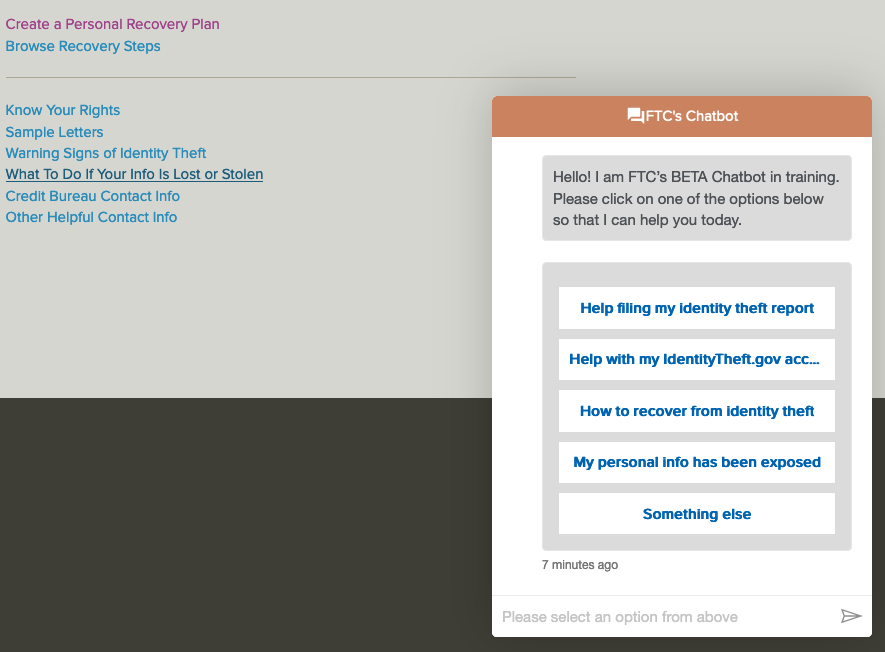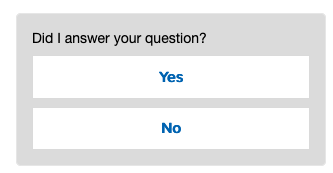Dealing with some administrative stuff today, I noticed that the Federal Trade Commission has a chatbot on the site identitytheft.gov.

Here’s what you see when you click on FTC’s Chatbot in the upper corner of the page:

Identifying a case where I knew what it would tell me, I clicked My personal info has been exposed. I just wanted to see what would happen.
Why it’s interesting
When you click that button, it asks you if your personal information has been exposed. If you choose the option Not Sure, rather suddenly the bot sends a series of messages in rapid succession, 7 in all, ending with asking if it’s answered your question.

The thing is, even for a very fast reader, it would be physically impossible to have read the responses given, not to mention the 9 links to outside sites it recommends visiting in the text. The experience is much like watching a vending machine dispensing a candy bar.
Why we care
The actual experience of identity theft is anxiety-inducing for many people, not least of which is the exposure to a great deal of information that is of entirely no interest or value unless you are taking it in under duress.
It stands to reason that if anything an experience that intends to simplify the experience of accessing information about what to do about the theft of one’s identify ought to be gentle as well.
Links
https://www.identitytheft.gov/Assistant
Let’s have a conversation
Let us know what you think! Write us at: